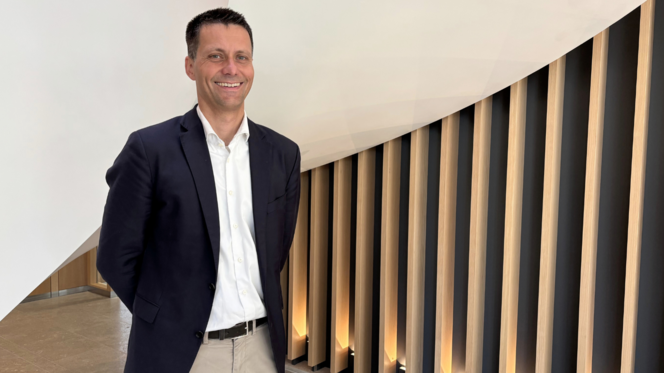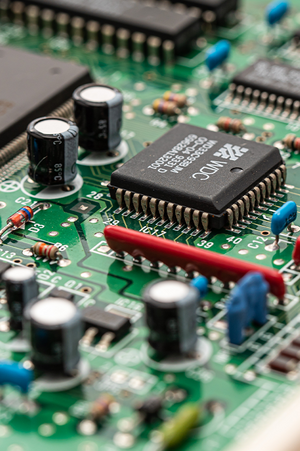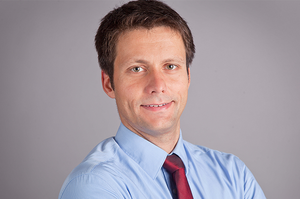For fossil-free electronics
Scientist Hans Kleemann receives Joachim Herz Prize

Dr. Hans Kleemann from the Technical University of Dresden has been awarded the Joachim Herz Prize 2025, endowed with 500,000 euros. His research approach aims to develop bio-based, recyclable printed circuit boards to replace conventional conductor structures that are used in almost every electronic device worldwide.
Based on the natural structure of leaves, his project can make an important contribution to the development of recyclable electronics on the one hand and show how high-tech applications can be inspired by nature on the other.

Every year, around 62 million tons of electronic waste are generated worldwide - around 60 percent of which are printed circuit boards. These are part of almost every electronic device and present two problems: they are made from non-renewable raw materials and they can only be recycled with great effort. This is where Dr. Hans Kleemann's research project "UnbeLEAFable" comes in: his research project "UnbeLEAFable" uses bio-based materials and the structural properties of leaf skeletons to develop sustainable printed circuit boards.
Innovative and interdisciplinary research
The innovation of Hans Kleemann and his team's research lies in the fact that nature's synthesis performance serves as a model to help solve a man-made problem. The filigree vascular system of leaves is used as a natural scaffold and filled with bio-based plastics. This creates a new type of material for sustainable printed circuit boards that can replace conventional components. If this succeeds, the project can make a major contribution to a fossil-free future. On the one hand, less energy and no fossil raw materials would be required during production and, on the other, the resulting printed circuit boards would be biodegradable, meaning that the remaining components could be reused. The Joachim Herz Prize, endowed with 500,000 euros, will enable Kleemann to continue his research work until a prototype has been developed that could be adopted by industry in the next step and go into application.
"If Dr. Kleemann succeeds in putting his highly innovative project into practice, it will be a real game changer for the electrical industry and will take us a big step forward on the road to a circular economy that is so important for our environment. His work is an impressive example of interdisciplinary, courageous research. "
Prof. Dr.-Ing. Dr. Sabine Kunst, Chairwoman of the Board, Joachim Herz Foundation
Funding closes critical gap in the innovation process
With its funding, the Joachim Herz Stiftung is addressing a gap in the German funding landscape. While there are good funding programs for basic research, there is little support for the risky phase of product development, prototyping and scaling shortly before or during market entry. This is why this phase is also referred to as the "Valley of Death", as venture capital only gets involved after a tech start-up has already been founded and established on the market.
About Hans Kleemann
Dr. Hans Kleemann is a research group leader at the Integrated Center for Applied Physics & Photonic Materials at Dresden University of Technology. He investigates the question of how electronic systems can be designed sustainably. His work ranges from fundamental questions of physics and materials science to process engineering research, system integration and neuromorphic computing methods. After completing his doctorate at TU Dresden, his career took him to UC Berkeley and the South Korean commercial enterprise Samsung SDI, among others. In April 2025, preliminary work for his research project "UnbeLEAFable" was awarded an EXIST start-up grant from the German Federal Ministry for Economic Affairs and Energy (BMWE).
The Joachim Herz Prize
The Joachim Herz Foundation awards the Joachim Herz Prize to outstanding scientists who use interdisciplinary approaches to provide impetus for a sustainable future. The research prize, endowed with 500,000 euros, honors projects by researchers in an early career phase who wish to deepen their research or pursue the transfer of their research projects into practical application. Part of the funding is the financing of a conference lasting several days, which is planned by the award winners to support their project and carried out together with the Joachim Herz Foundation. The Joachim Herz Prize is awarded annually, alternating between the natural sciences and economics.
This year's award ceremony will take place on September 30 in Hamburg.
